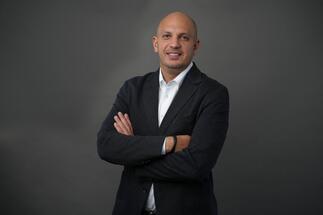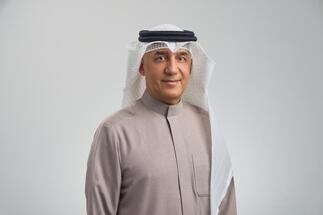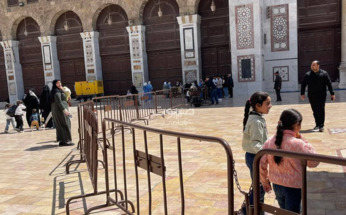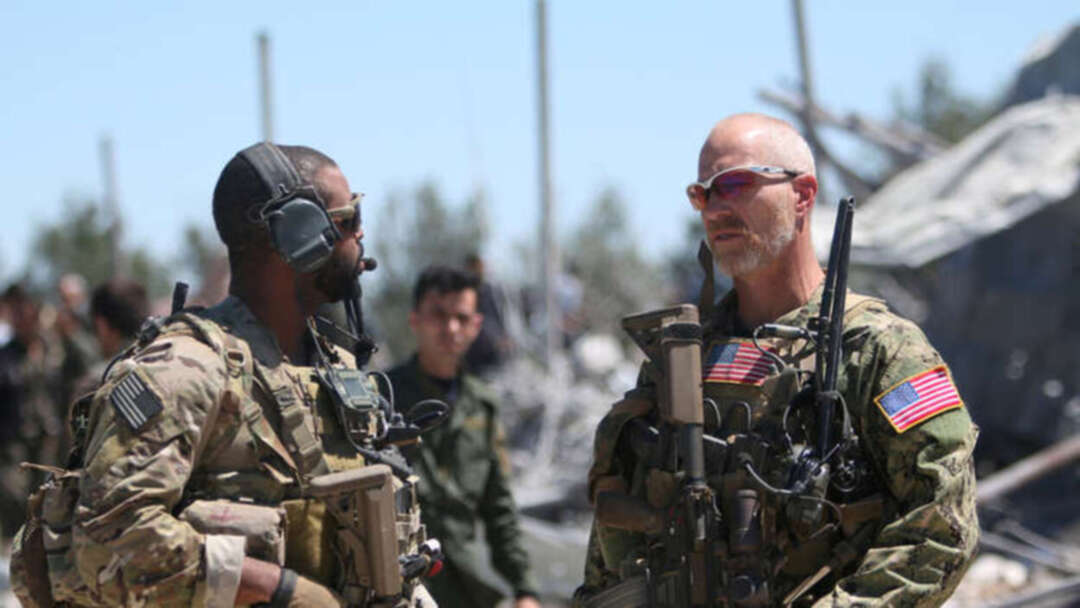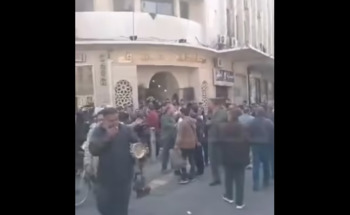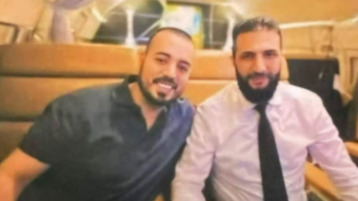-
Turkey and Iran. Interventions in the region with historical peccadilloes.
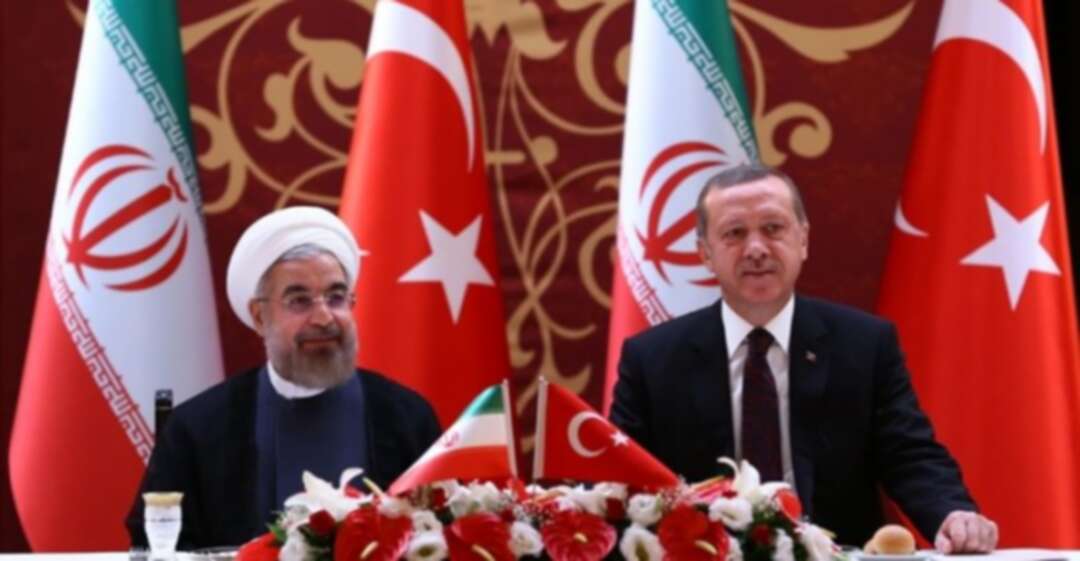
Libya's military spokesman, Ahmad al-Mesmari accused Turkey of interfering in Libyan internal affairs, that made the Arab League Secretary-General, Ahmed Aboul Gheit, to warn of Turkey's continuous involvement during his speech at the Tunis summit 2019.
The Libyan charges show considerable evidence such as arms trafficking to the Tripoli militias by Turkish ships, also the drones which were shot down are Turkish made. Adding to that evidence, a local Libyan newspaper discovered the identities of the Turkish military experts' team, including a senior general, and all work in the capital of Tripoli for the government of Fayez Sarraj.
Iran and Turkey. Historical Conflicts.
The results of the so-called "Arab spring" allowed the Iranians and Turks to expand and seek influence in the Arab countries. The desire of Tehran and Ankara was not the result of the imbalances in 2011 but was a part of their aim in the exploitation of the chances.
Iran is starting from the concept of exporting the revolution, which brought Khomeini to the presidency after the overthrow of the Shah in 1979, but the Turks did not have a desire to expand until the reach of Recep Tayyip Erdogan to political power in 2002.
Iran fought the eight-year war with Iraq following a border dispute. The war had revealed Iran's desire to expand to the Arab countries by restoring the fake glory of the Persian Empire. The Iranians did not hide those desires by declaring their control of four Arab capitals.
Turkey, which entered a border dispute with Syria on Iskenderun, after 1991 surpassed the Iraqi borders invoking the pursuit of the Kurds. When the AKP came to power, Turkey began to show its desire for expansion and influence in its Arab neighbourhood by restoring the dreams of the Ottoman Empire.
Turks and Iranians meet in their ambitions and interests and even their projects, although the two parties are working to destroy the Arab national identity in order to control it through local agencies pro-Iranian and Turkish projects.
Ankara and Tehran Agreement.
Although the Turkish and Iranian projects differ in the political and strategic plans, their mutual desire is to share the influence in the Arab region.
In Syria, despite the fundamental differences in their declared policies, Turkey adopts the goal of overthrowing the Syrian regime and supporting the opposition with weapons and providing training camps for them. While Iran adopts supportive positions to the Syrian regime and supports it on different sides. Iran and Turkey were able to make use of their mutual interests and ignore the differences, they defined the borders between their regional projects.
Thus, in January 2018, Turkey occupied the Syrian city of Afrin invoking protecting the Turkish national security, which is rejected by all international conventions. Turkey claims that it faces People's Defence Units, which Turkey considers as a Syrian part of the PKK in Turkey, which Turkey classifies as a terrorist party. The reality is that the Turkish involvement came as a result of the successes of the power balance in northern Syria, which is now clearly close to the Kurds and the Syrian regime interests.
Besides, Turkey supports many Syrian armed factions that adopt extremist ideology and supplies them with weapons, but rather those factions participated in the Turkish operations in Afrin against the Kurds. Turkey has also supported many terrorist groups in many Arab countries like the Brotherhood group and supported them, it also provided media platforms for them, which threatens the security and stability of many Arab countries like Syria and Libya, which creates another challenge facing Arab countries.
As for Iran, it supports the Syrian regime and considers it its ally, because it considers Syria the key to control and expand in the Arab world, and it is closer to the power centres in Lebanon and Iraq. Where Syria has a great position according to its strategic location in the Fertile Crescent which has wide geographical areas that help Iran continue its invasion into the Arab entity.
In Iraq, Turkish-Iranian interests meet particularly toward the Kurds, while the views of both countries vary towards Iraq, where both countries are competing for controlling the internal affairs after the great Iranian influence in Iraq.
The Turks consider Mosul as an Ottoman land, they are trying to take it and continue through their military intervention, and they are working to strengthen their influence in the north of Iraq. Since the defeat of Saddam Hussein's regime in 2003, the Iranians have created multiple sectarian militias within Iraq and have strengthened their influence through supporters in the political power which rules Iraq, exploiting the US withdrawal and power vacuum.
Arab attitude
After the fall of Sana'a by the Houthi coup in September 2014, the Arab Alliance began to activate its political and military means to end the Iranian involvement that reached Iraq, Syria, Yemen, and Lebanon through its terrorist militias.
The Arab resistance towards the Iranian interventions has succeeded in the geopolitical situation in maintaining the security of Bab al-Mandab Straits after the liberation of Aden. Arab diplomacy has been able to take an attitude regarding the Iranian nuclear agreement. The Gulf states should participate in any agreement in the future about the Iranian nuclear program, with the necessity of stopping the interventions in Arab internal affairs and put an end to the missile program that threatens the security and stability of the region.
On the other hand, Arabic attitude is still uncertain towards Turkey, which in turn is affecting the Arab countries through the Muslim Brotherhood. Although Turkey does not hide its hostility to several Arab capitals and tries to control them even militarily, as in Libya, the Arab League didn't ignore warning Turkey.
You May Also Like
Popular Posts
Caricature
BENEFIT AGM approves 10%...
- March 27, 2025
BENEFIT, the Kingdom’s innovator and leading company in Fintech and electronic financial transactions service, held its Annual General Meeting (AGM) at the company’s headquarters in the Seef District.
During the meeting, shareholders approved all items listed on the agenda, including the ratification of the minutes of the previous AGM held on 26 March 2024. The session reviewed and approved the Board’s Annual Report on the company’s activities and financial performance for the fiscal year ended 31 December 2024, and the shareholders expressed their satisfaction with the company’s operational and financial results during the reporting period.
The meeting also reviewed the Independent External Auditor’s Report on the company’s consolidated financial statements for the year ended 31 December 2024. Subsequently, the shareholders approved the audited financial statements for the fiscal year. Based on the Board’s recommendation, the shareholders approved the distribution of a cash dividend equivalent to 10% of the paid-up share capital.
Furthermore, the shareholders endorsed the allocation of a total amount of BD 172,500 as remuneration to the members of the Board for the year ended 31 December 2024, subject to prior clearance by related authorities.
The extension of the current composition of the Board was approved, which includes ten members and one CBB observer, for a further six-month term, expiring in September 2025, pending no objection from the CBB.
The meeting reviewed and approved the Corporate Governance Report for 2024, which affirmed the company’s full compliance with the corporate governance directives issued by the CBB and other applicable regulatory frameworks. The AGM absolved the Board Members of liability for any of their actions during the year ending on 31st December 2024, in accordance with the Commercial Companies Law.
In alignment with regulatory requirements, the session approved the reappointment of Ernst & Young (EY) as the company’s External Auditors for the fiscal year 2025, covering both the parent company and its subsidiaries—Sinnad and Bahrain FinTech Bay. The Board was authorised to determine the external auditors’ professional fees, subject to approval from the CBB, and the meeting concluded with a discussion of any additional issues as per Article (207) of the Commercial Companies Law.
Speaking on the company’s performance, Mr. Mohamed Al Bastaki, Chairman BENEFIT , stated: “In terms of the financial results for 2024, I am pleased to say that the year gone by has also been proved to be a success in delivering tangible results. Growth rate for 2024 was 19 per cent. Revenue for the year was BD 17 M (US$ 45.3 Million) and net profit was 2 Million ($ 5.3 Million).
Mr. Al Bastaki also announced that the Board had formally adopted a new three-year strategic roadmap to commence in 2025. The strategy encompasses a phased international expansion, optimisation of internal operations, enhanced revenue diversification, long-term sustainability initiatives, and the advancement of innovation and digital transformation initiatives across all service lines.
“I extend my sincere appreciation to the CBB for its continued support of BENEFIT and its pivotal role in fostering a stable and progressive regulatory environment for the Kingdom’s banking and financial sector—an environment that has significantly reinforced Bahrain’s standing as a leading financial hub in the region,” said Mr. Al Bastaki. “I would also like to thank our partner banks and valued customers for their trust, and our shareholders for their ongoing encouragement. The achievements of 2024 set a strong precedent, and I am confident they will serve as a foundation for yet another successful and impactful year ahead.”
Chief Executive of BENEFIT; Mr. Abdulwahed AlJanahi commented, “The year 2024 represented another pivotal chapter in BENEFIT ’s evolution. We achieved substantial progress in advancing our digital strategy across multiple sectors, while reinforcing our long-term commitment to the development of Bahrain’s financial services and payments landscape. Throughout the year, we remained firmly aligned with our objective of delivering measurable value to our shareholders, strategic partners, and customers. At the same time, we continued to play an active role in enabling Bahrain’s digital economy by introducing innovative solutions and service enhancements that directly address market needs and future opportunities.”
Mr. AlJanahi affirmed that BENEFIT has successfully developed a robust and well-integrated payment network that connects individuals and businesses across Bahrain, accelerating the adoption of emerging technologies in the banking and financial services sector and reinforcing Bahrain’s position as a growing fintech hub, and added, “Our achievements of the past year reflect a long-term vision to establish a resilient electronic payment infrastructure that supports the Kingdom’s digital economy. Key developments in 2024 included the implementation of central authentication for open banking via BENEFIT Pay”
Mr. AlJanahi concluded by thanking the Board for its strategic direction, the company’s staff for their continued dedication, and the Central Bank of Bahrain, member banks, and shareholders for their valuable partnership and confidence in the company’s long-term vision.
opinion
Report
ads
Newsletter
Subscribe to our mailing list to get the new updates!

